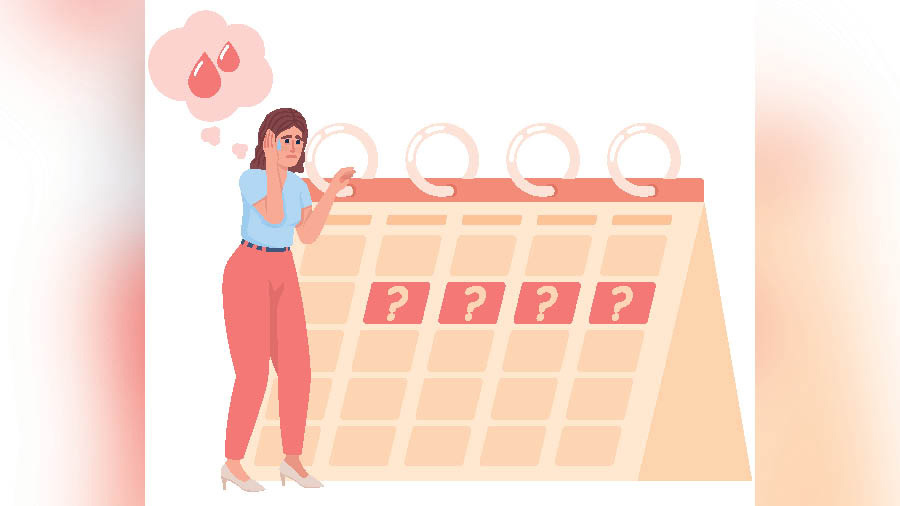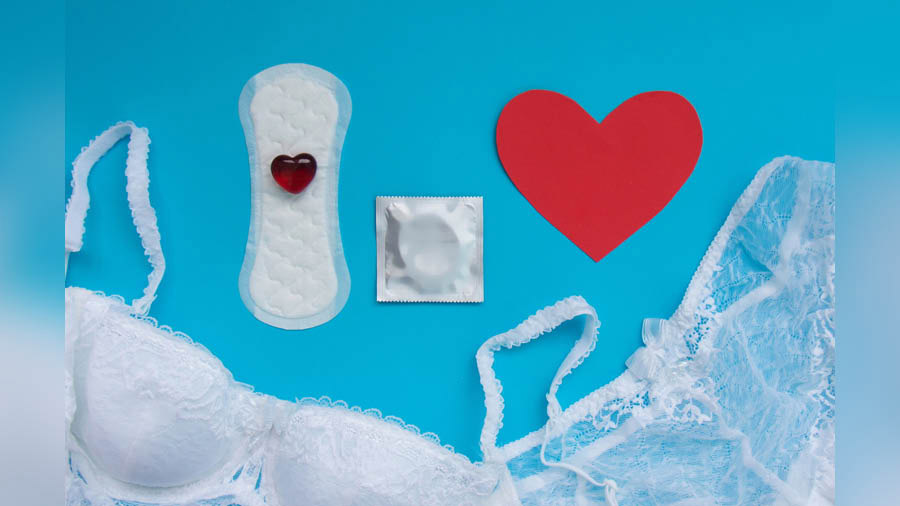Is it okay to have sex during periods? Are there any precautions to take?
Whether sex is “okay” during periods depends entirely on what you think makes sex “okay”. Here’s a quick guide to everything you need to know before you get bloody sexy.
Is it “omg get away from me” or “yes please, don’t go away”?
When it comes to libido (sexual interest) during periods, it can go either way – some people find that they are even more in the mood for sexy times during their period, but others would not like to engage in any type of intimacy at all through cramps, feeling low energy or general discomfort with period blood. Check in with yourself and your partner to see how you feel about this experience – how they feel now may not be how they have felt in the past!
Let’s talk blood
There is a lot of social stigma against period blood, which is often informed by social norms, religious beliefs and even personal discomfort with periods. While some people find it ‘gross’ or ‘smelly’, a lot of these ideas are culturally informed more than rooted in actual medical risk. Direct contact with period blood is safe and is unlikely to cause any additional infections upon contact with fingers, penis, or shared toys, if you follow your usual protocols for cleanliness and hygiene whenever you’re done.
A few studies show a slightly higher risk of STI (sexually transmitted infection) transmission for the person with the vagina during periods due to a lowered overall pH of the vagina which can make them a little more vulnerable than usual. Using condoms and other barrier methods can help reduce this risk. Remember, this risk exists all month long and is not affected by the presence of period blood!
It is important to remember there are many types of sexual activity and intimacy that go beyond penis-in-vagina intercourse that are lower risk. If you’re not in the mood to get frisky in your vagina during your period, you may want to consider external stimulation, focusing on erogenous zones (areas that feel good to touch) which are not the genitals.

While people typically ovulate around day 13-15, the exact date may vary depending on changes and fluctuations going on in your life
ShutterstockKeep the condom on
Even during your period, there is some risk of pregnancy and STIs (sexually transmitted infections), so you want to continue your typical protocol around STI-prevention and pregnancy prevention (condoms or otherwise).
Wait, but my school biology class said we are only fertile on day 14 of our menstrual cycle? Here’s where your textbook might have failed you.
Well, based on how the menstrual cycle works, your most fertile days are generally around the 13-15th day from the start of your last period (if you have a predictable 28ish day cycle) as that is when you are ovulating.
However, if you’re sure you don’t want to get pregnant right now, you may want to avoid unprotected intercourse during your period — and during the rest of your cycle, as you could at least theoretically get pregnant all month long.
Here’s why one should use contraception all month long:
- You might ovulate early or late: While people typically ovulate around day 13-15, the exact date may vary depending on changes and fluctuations going on in your life (e.g., stress or travel can affect your overall cycle). Ovulation dates can be even more difficult to predict if your cycle is irregular (e.g., if you have PCOS or have taken an ‘iPill’ equivalent recently)
- Sperm can live long: Sperm cells can live and cause pregnancy for up to 5 days in the vagina / uterus. So, even if you had sex a few days before your fertile window or towards the end of your window, a few sperm could be active and ready to go once you do ovulate and have an egg waiting to be fertilized
All in all, if you don’t want to get pregnant right now, I’d recommend using a condom or any other type of contraception you typically use to prevent pregnancy and STI transmission.
Some quick hot tips:
- Lay down a dark towel on your bed to help with clean-up later
- Consider using a menstrual cup or tampon if you’re not having vaginal intercourse (this can help give easy access to the clitoris for external stimulation)
- Some people say they enjoy having bloody vaginal intercourse since the blood serves almost as a load of additional lubricant that makes things slippery and glide-y
- Orgasms can help reduce menstrual cramps!
Bottom line: If you and your partner don’t like it, don’t do it; if the idea excites you — go for it!
Karishma Swarup is a Kolkata-born and raised sexuality educator, Instagrammer (@talkyounevergot) and works at a global consulting firm. She busts myths about sex, pleasure, intimacy, orgasms, periods, and all things related to sexual health.
If you have a question you would like Karishma to answer, send an email on mykolkata@telegraphindia.com with the subject line ‘Questions for Karishma’ or DM/comment on our Facebook, Instagram, or Twitter.








